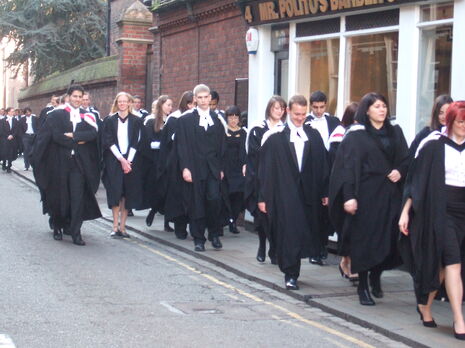Top universities still failing on social mobility
A report by a left-wing think tank has revealed that Cambridge ranks 135th out of 153 UK universities for the social mobility of graduates

The most selective of British universities, including the University of Cambridge, are still not doing enough for poorer students based on their graduate job prospects, claims a new report.
The research was published by the left-wing think tank CentreForum, and claims that that current government policy is too focused on ‘inputs’ rather than ‘outputs’ – universities are incentivised to accept certain quotas of students from disadvantaged backgrounds, but not encouraged to support them during and after their studies.
The former vice-chancellor of Liverpool John Moores University, Professor Michael Brown, who authored the report, recommended a Social Mobility Graduate Index (SMGI) in order to compare British universities in terms of their success in getting students into graduate employment. Greater weight would be given to students from poorer backgrounds in the rankings.
‘Research-intensive’ institutions, such as the Russell Group universities, are consistently outranked by other higher education institutions, according to the SMGI. Edge Hill University and University College Plymouth came in the top five, whereas the University of Oxford came second from bottom. Cambridge was ranked 135 out of 153 universities.
The report comes amid ongoing debate over equality of access and study to the UK’s most selective universities, and Oxbridge in particular. Professor Brown commented that “despite the political focus on access to Russell Group universities, the most selective institutions do not necessarily deliver the best professional graduate outcomes for disadvantaged students either. It is time to raise the game.”
The report proposed further support for poorer students as part of undergraduate study, including presentation, communication and IT skills.
A spokesman for the University of Cambridge reiterated the official response given by the Russell Group, which went as far as to “reject” the report’s findings.
The director general of the Russell Group, Wendy Piatt, said that the report only surveyed graduate employment six months after graduation and gave a lower weight to postgraduate study. She claimed the report makes “very strange assumptions about social mobility” by coming to the conclusion that disadvantaged students graduating from a Russell Group university will then go on to earn 24 per cent more per hour on average than graduates from other institutions.
Hanna Stephens, a Geography student from Homerton, echoed Piatt’s concerns about the report, saying, “I agree with the idea of governments encouraging universities to recruit students from disadvantaged backgrounds […] But I think the idea of the need to train those from disadvantaged backgrounds up is a bit patronising and can't just be applied to all students because they are likely to choose to go for different jobs, each with their own skill requirements.”
 News / Eight Cambridge researchers awarded €17m in ERC research grants27 December 2025
News / Eight Cambridge researchers awarded €17m in ERC research grants27 December 2025 News / Clare Hall spent over £500k opposing busway 24 December 2025
News / Clare Hall spent over £500k opposing busway 24 December 2025 Comment / League tables do more harm than good26 December 2025
Comment / League tables do more harm than good26 December 2025 Comment / The ‘class’ of Cambridge24 December 2025
Comment / The ‘class’ of Cambridge24 December 2025 News / Caius mourns its tree-mendous loss23 December 2025
News / Caius mourns its tree-mendous loss23 December 2025








